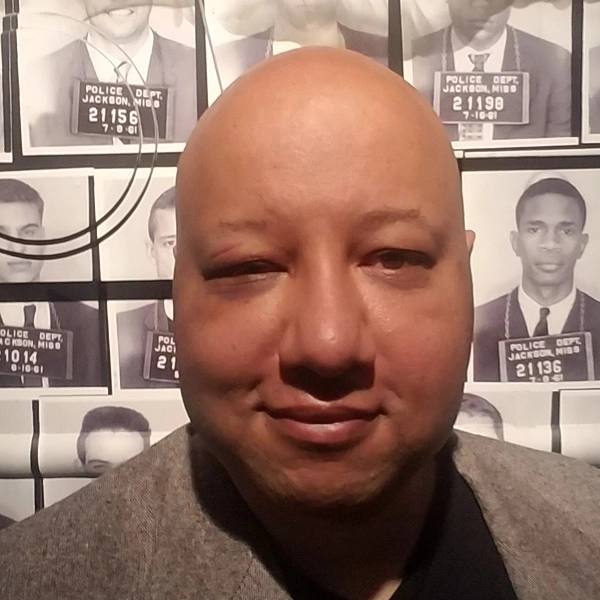Stephanie Hobson, someone I interviewed earlier this year who used to live in the Forest Cove apartments, called me out of the blue recently, looking for help. Before a court mercifully closed the dangerous complex last year, to live in Forest Cove was to call hell home—albeit without the dignity of actual damnation. Unfortunately, she moved somewhere scarcely better.
She was evicted from an apartment that literally had a hole in the floor and rats in the walls, surrounded by gunfire, squatters, and squalor, and had been living in a car for the last 18 months with her 12-year-old son, trying to figure out how to rent an apartment with an eviction on her record.
Eventually, local organization the Gateway Center found her a place to live. She came up with first month’s rent and a deposit that was $200 more than she would’ve paid without an eviction. She has a job starting in a couple of weeks, but she’s going to be short for next month’s rent, and is worried she’ll be evicted again.
That place is next door to Forest Cove. She recently twisted her ankle running from a gunfight at the gas station across the street.
“It’s almost like they’d rather we be homeless than to fix what’s going on around us, and to make it accessible for people who need the help,” she told me. “They let one eviction mess up people’s lives forever.”
This is what it means to be poor in Atlanta. She had the money to rent another apartment when she was evicted. It didn’t matter. The free fire zones and garbage dumps masquerading as this city’s worst apartment complexes exist because they can exploit the desperation of people barred from living elsewhere.
I’ve been making phone calls and sending emails trying to help her in recent weeks. But the system cannot depend on someone in crisis obtaining the intermittent attention of a single journalist.
The AJC’s “Dangerous Dwellings” series has done a lot of important work highlighting the predations of slumlords. But the fact remains that Atlanta has a caste system, and my friend is in its untouchable class at the bottom. Meanwhile, up at the top, the shell-incorporated property-bro owners of dangerous, dilapidated, uninhabitable residences are also untouchable.
How do you fix a housing debacle like this one? For starters, a state-wide standard for housing habitability must be set. The beneficial owner of a property—an actual human being—must be accountable under the law. The cure period for an eviction must be lengthened at least to the national average. And retaliation against a tenant reporting code violations in good faith should result in a criminal charge and a jailable offense. And honestly? These suggestions are just the bare minimum.
In a just world, if an apartment complex were found to be in a state of disrepair that shocks the conscience, the owner—the person profiting off of these conditions—would be made to stand in the dock. There, someone like me could take their picture and post it like a mugshot with the SEO-optimized power of the press to describe their moral and legal failings. In a just world, the government would dispossess slumlords of their holdings and the capital markets would treat them like the rental market treats my friend living with her kid in a car: as a pariah to be shunned.
This isn’t happening anywhere, of course. But Georgia’s slumlord problem is accelerating in particular because we have some of the most landlord-friendly laws in the United States, and a metro area attracting new tenants faster than we can build units to house. Atlanta is the path of least resistance for bad actors.
Increasingly, we’re seeing stories about large private equity investors buying swaths of residential property in cash. They pay in cash because leverage is nice, but not paying 7% interest rates is nicer. After that, they rent it for whatever the market will pay with little regard for building sustainable communities or local relationships. If we’re to have a city of empowered citizens and not feudal serfs, this must end, and quickly.
I’ve been popping into Atlanta’s eviction court as a spectator recently. It’s a place of absolute sorrow that renders an observer ashamed simply by bearing witness to the intentional infliction of pain.
A renter can be evicted—from first notice to out the door—in less than a month. When a court issues a final notice, tenants have an unconscionable seven days to vacate. This is a fairly unique American housing law. Hell, Texas requires a month. This injustice is perhaps the most important reason why Georgia has been descended upon by bad landlords—the types of people who build nothing and destroy much.
Ask yourself how long you would need to find a new place to live if you had to leave 30 days from now. Then consider what would happen if you had an eviction on your record.
Under the best circumstances, people have a friend or family member to crash with while sorting things out. More often, people find themselves at questionable extended-stay motels, watching as their financial condition rapidly deteriorates. When you see the contents of a home piled on a sidewalk, that’s the worst case.
I have another friend with two kids, the older of which was conceived during the Occupy Wall Street protests in Atlanta. She lives up the street from me in an apartment with a bullet hole in the wall and mold in the vents. The landlord wants her gone because she had the audacity to complain about it to code enforcement.
There is no private action for a code violation that allows a renter to pull a landlord into court in Georgia. Landlords do not have a “standard of habitability” that is enforceable under state law. You have to show that you have been damaged, somehow, in order to sue a landlord for running a hellhole, or get an overworked, marginally-sympathetic code enforcement officer to actually cite a building owner.
The city of Atlanta launched a $1.4 million initiative earlier this year, with $600,000 set aside to investigate and prosecute bad actors in the housing space. Plainly, that’s not enough. In early October, the city announced a follow-up initiative, sending $2 million to Star-C, an anti-homelessness nonprofit focused on reducing student transiency.
The median turnover in Georgia schools is about 15%. Schools in impoverished neighborhoods in Atlanta and DeKalb County can run close to 50%. Which is to say: half the student body moves mid-school year, as their parents get evicted or chase two-months-free move-in specials at apartment complexes that are juicing their occupancy rates before selling their properties to Wall Street investors.
Now, let’s put that $2 million into perspective. Roughly 500,000 people live in the city of Atlanta, and about 55% of its residents rent. The city has about 275,000 housing units. That suggests that something like 150,000 rentals exist. The average rent in Atlanta is about $1,850 a month. So, renters pay $3.3 billion a year to rent in the city.
The city’s eviction backlog currently sits at about 7,000 cases. To cure every one of these cases, assuming they’re just one month behind, would cost about $13 million, never mind all the other cases that will be filed moving forward.
I sent a note to Star-C last week.
“I have a case staring me in the face right now, and I’m curious about whether you’re prepared to put the city’s money where its mouth is,” I wrote to Audrea Reese, Star-C’s executive director. “A few months ago, I interviewed Stephanie Hobson on my Fox 5 show The Next Atlanta.”
I described her case.
“The system, after 18 months of homelessness, would have had her housed for exactly one month. That’s what I’m staring at here. She’s $1,200 short. She fits the ‘single parent with child enrolled in APS’ criteria. Show me what you’re capable of here.”
Audrea replied:
“With regard to the $2 million from the City of Atlanta, resolutions were presented the other day. The actual legislation will be voted on October 16, and if passed, the program will begin at some point after that. We don’t currently have any funding from the City of Atlanta to assist residents. The Atlanta Volunteer Lawyers Foundation has funding for two zip codes in Atlanta to provide assistance. I don’t know what those zip codes are, so please reach out to them directly.”
Pretty bleak, right?
State law has to change if we’re gonna fix any of this.
Georgia’s housing laws are among the easiest to exploit in this country. Without a state-wide standard for housing habitability, unscrupulous landlords will look for cities with overworked and overwhelmed code compliance officers and put up enough legal resistance to keep them individually at bay, dragging cases out while cashing rental checks.
The laws as they currently stand don’t require a local agent to present themselves when a problem emerges. Legislation could solve that problem overnight. When an actual flesh and blood human has to stand in front of a cop and a judge, conditions will change.
This is especially true when considering retaliatory evictions. Legislators changed Georgia law in 2019 allowing renters to sue a landlord who retaliates against tenants reporting code violations. But it’s not enough. It relies on very poor people finding the legal resources to sue, with recovery of just a month’s rent, plus $500 and court costs. That’s a big gamble for someone who will be unhoused if they fail.
(For what it’s worth, late last week The City of Atlanta announced a class action lawsuit against Forest Cove owner and Ohio-based mega-landlord Millennia Housing Management. While the efficacy of the legal action remains to be seen, the lawsuit alleges, on behalf of former Forest Cove residents, “a pattern of neglect” and that Millennia prioritized profits over resident safety.)
Retaliation needs to be treated as a crime, a theft of honest services, with much, much larger fines—enough to put ownership in jeopardy—and potential jail time when retaliation results in homelessness.
Evictions in Georgia can happen faster here than almost anywhere, which is a factor in unit turnover—an accounting measurement that predicts the profitability of a rental dwelling. I understand the arguments against changing this law, because we also have a massive squatter problem. But people overstaying their leases is a direct consequence of the punitive eviction process in Georgia, since an eviction on someone’s record makes getting their next residence exponentially more difficult. Put another way: it’s in the market’s best interest to have fewer evictions.
Until these changes start happening, we’ll continue to attract the worst of the worst. We’re a safe haven for America’s slumlord property bros. The most exploitable city in one of the most exploitable states in America. A place where the rich get richer and the poor get evicted. We have the power to change all that, but will we?

George Chidi
George Chidi began his award-winning career as an Army journalist in 1995. In the rare moments he isn’t writing or reporting on crime and politics for his newsletter, The Atlanta Objective, he covers Georgia for The Intercept and Rolling Stone, and contributes a column to Decaturish. He’ll soon begin writing about red state and blue city politics for The Guardian.
